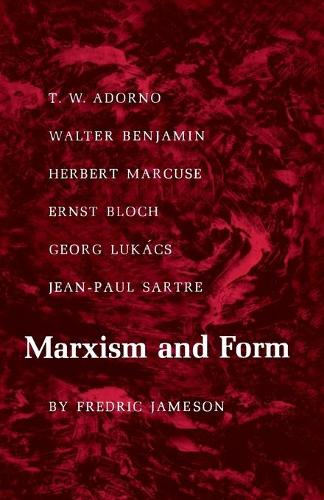
Marxism and Form: 20th-Century Dialectical Theories of Literature
(Paperback)
Publishing Details
Marxism and Form: 20th-Century Dialectical Theories of Literature
By (Author) Fredric Jameson
Princeton University Press
Princeton University Press
29th July 1974
United States
Classifications
Professional and Scholarly
Non Fiction
801
Physical Properties
Paperback
454
Width 140mm, Height 216mm
567g
Description
For more than thirty years, Fredric Jameson has been one of the most productive, wide-ranging, and distinctive literary theorists in the United States and the Anglophone world. Marxism and Form provided a pioneering account of the work of the major European Marxist theorists--T. W. Adorno, Walter Benjamin, Herbert Marcuse, Ernst Bloch, Georg Lukacs, and Jean-Paul Sartre--work that was, at the time, largely neglected in the English-speaking world. Through penetrating readings of each theorist, Jameson developed a critical mode of engagement that has had tremendous in.uence. He provided a framework for analyzing the connection between art and the historical circumstances of its making--in particular, how cultural artifacts distort, repress, or transform their circumstances through the abstractions of aesthetic form. Jameson's presentation of the critical thought of this Hegelian Marxism provided a stark alternative to the Anglo-American tradition of empiricism and humanism. It would later provide a compelling alternative to poststructuralism and deconstruction as they became dominant methodologies in aesthetic criticism. One year after Marxism and Form, Princeton published Jameson's The Prison-House of Language (1972), which provided a thorough historical and philosophical description of formalism and structuralism. Both books remain central to Jameson's main intellectual legacy: describing and extending a tradition of Western Marxism in cultural theory and literary interpretation.
